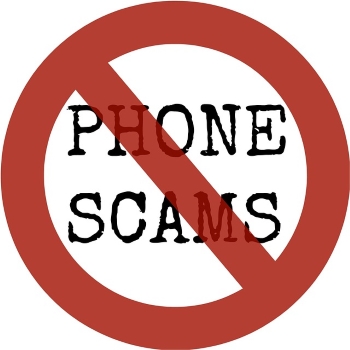Yesterday at work, I received a call on my cell phone while in a meeting and did not answer. The number was not familiar, but the caller left a little present, a tax fraud phishing voicemail.
These calls were very common as recently as six months ago and a huge annoyance to people in California and across the United States. That is, until the US Treasury Inspector General took down one of the largest groups behind these attacks earlier this year. The takedown had the desired dissuading effect across these groups, as much of the calls stopped, at least for a while. Unfortunately, it appears another criminal group has filled the void. Deterrence tends to last for only a short time when competing with the growing greed of thieves.
Ironically, earlier in the week I gave a presentation on phishing, talking about how fraudsters can use email, phone, and texts to commit fraud. The normal modus operandi for these panderers is to call unsuspecting victims, identify themselves as the Internal Revenue Service, demand money, and threaten legal action, including threats of going to jail. The folks can be convincing and persistent when they detect weakness. Unfortunately, some people pay these criminals, which feeds the cycle of greed and motivates them to move on to the next target.
Here is the transcript of the voicemail, which was delivered in a mechanical monotone, obviously delivered using automated text-to-speech software:
“…Internal Revenue Service, this is to let you know we have received a legal petition notice concerning cash fraud invasive against your name. So before this matter goes to the federal claim court kindly call us on the same number 360-591-7870 repeat 360-591-7870. You have a nice day.”
Just for fun I did some research: This number is ranked on the top list for fraudulent IRS tax callers for the week. I am a cybersecurity strategist; so this stuff is entertaining for me.
Surprise
Over the years, I have heard a lot of these scams, but one thing did surprise me on this call. At the end of the fraudulent message the automated voice clearly said “have a nice day.” That is a first!
I think from now on all fraudulent calls should end with “have a nice day.” Your intended victims appreciate a little politeness. If you are going to attempt to fleece innocent peoples of their hard-earned money, the least you can do is show a little civility.
Government impersonation scams a big problem
Phishing scams are up 400% this year. The IRS is aware of more than 5,000 victims who have collectively paid over US$26.5 million as a result of such frauds. If you ever get a call from an “IRS” representative, do not give any personal information. Take their name, badge number, and phone number and hang up. Call the IRS directly at 1-800-366-4484 to determine if the caller is an IRS employee with a legitimate need to contact you.
The IRS does not use automated calls to solicit money and does not demand immediate payment over the phone. If the IRS has a grievance with you, they will send you paperwork in the mail before trying to reach you by phone. For more information or to report being a victim, go to the IRS website.
What happens when law enforcement is phished?
If you want to hear something hilarious, this is a YouTube video of an IRS scammer who accidentally called an Orange County District Attorney investigator, who chats with him. Some great insights, but also some vulgar language.
Video Link: https://youtu.be/A6yAyIo_DNY
Interested in more? Follow me on Twitter (@Matt_Rosenquist) and LinkedIn to hear insights and what is going on in cybersecurity.














